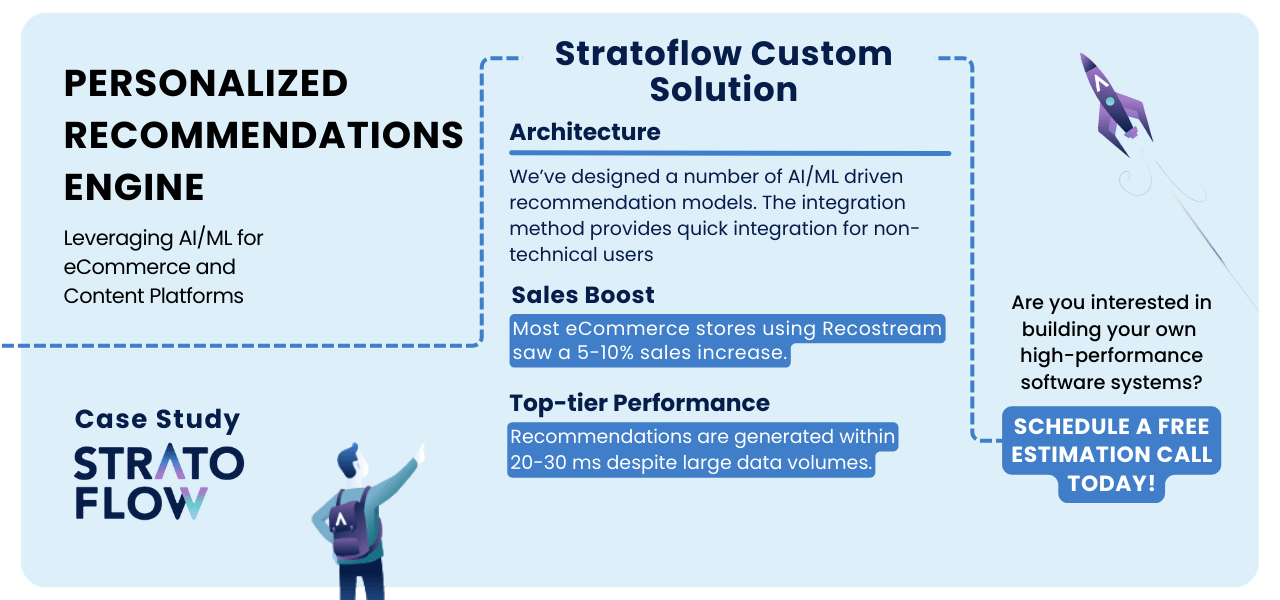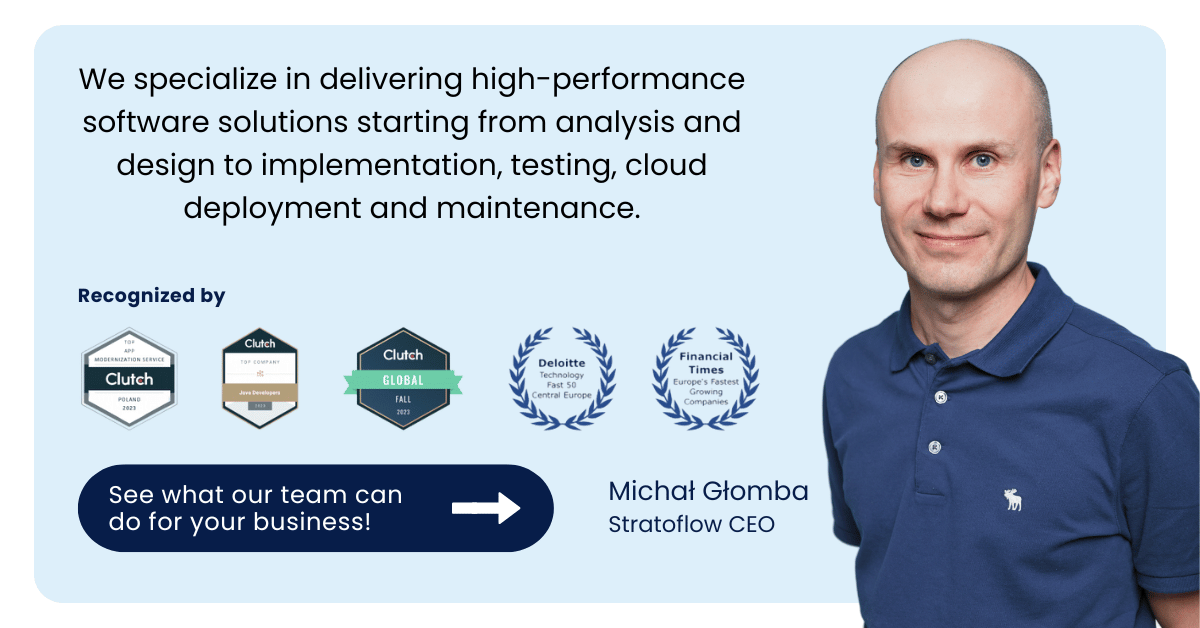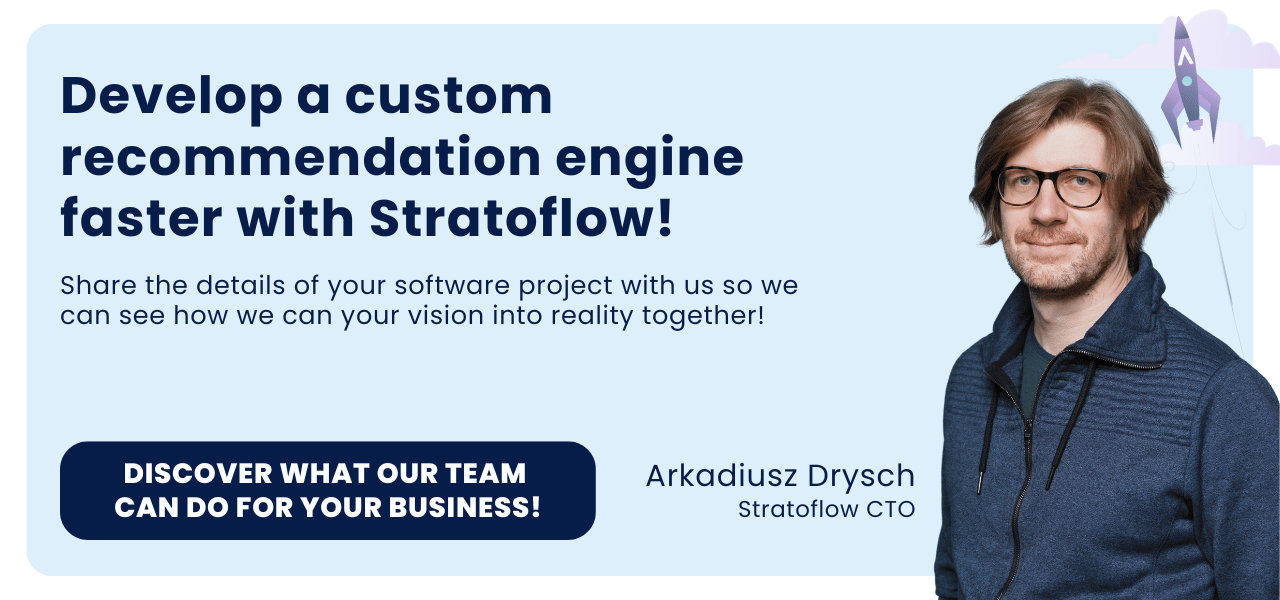
Music Recommendation System: How Do Streaming Platforms Use AI?
Have you ever wondered how platforms like Spotify and Apple Music know what you want to listen to next?
The secret lies in intelligent music recommendation engines.
These systems analyze your listening habits, preferences, and even the time of day to suggest songs and artists that are perfectly tailored to your tastes.
In this article, we’ll dive into the mechanics of these recommendation engines, explore their value to streaming platforms, and see how similar technologies are revolutionizing other industries, including e-commerce, travel, real estate, social media, and media.
What is a Music Recommendation Engine?
A music recommendation engine is a system designed to suggest songs, albums, or artists to users based on their listening habits, user preferences, and other factors.
These engines use algorithms that analyze what a user has played, liked, or skipped to understand their musical tastes.
By processing this data, the system can recommend new music that the user might enjoy.
For example, Apple Music uses a music recommendation system that takes into account your listening history and the songs you’ve added to your library to create personalized playlists and suggestions.
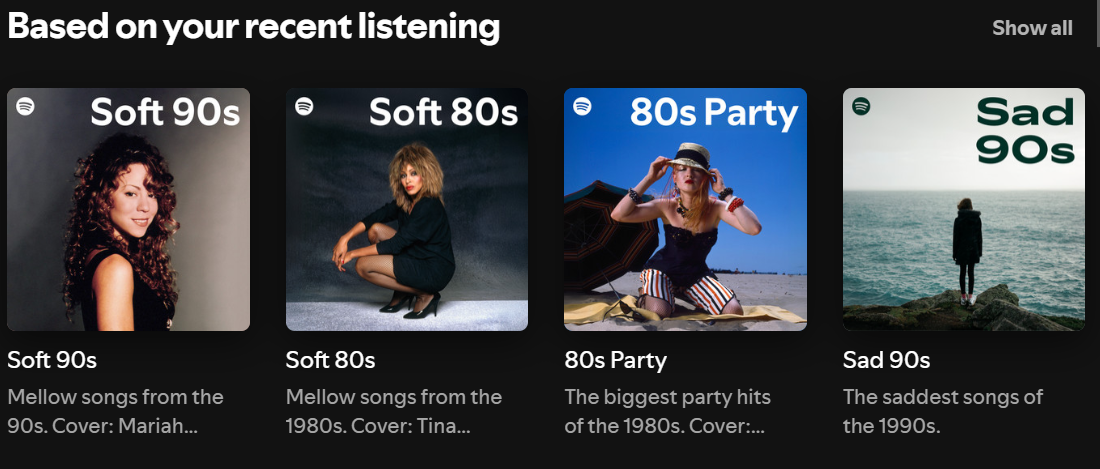
Sometimes it might introduce you to an artist you’ve never heard of, while other times it might suggest an album by a band you already love.
The goal of a music recommendation engine is to enhance your music discovery experience, making it easier and more fun to find new favorites.
And is your company in need of a personalized user experience?
Get your own custom recommendation engine!
How does a music recommendation system work?
A music recommendation system works by analyzing various data points to predict what songs or artists you might like.
These systems use a variety of methods to make their recommendations, combining user behavior, song characteristics, and even advanced audio analysis to tailor their suggestions.
The ultimate goal is to create a seamless and personalized music discovery experience.
Let’s take a closer look at three common methods used in these systems: Collaborative Filtering, Content Based Filtering and Advanced Audio Models.
Collaborative Filtering Method
Collaborative filtering is a popular approach in music recommendation systems that works by comparing your listening habits with those of other users.
It works by comparing a user’s listening history with that of other users.
Essentially, it groups listeners with similar tastes and suggests music that people in your group have enjoyed but you haven’t yet discovered.
For example, if several users with similar tastes enjoy a particular artist, the system might recommend that artist to you.
However, this method can sometimes fall short because it relies on proximity-based recommendations.
If your music tastes are more eclectic or unique, you may find the suggestions too predictable or repetitive.
To overcome this limitation, many music recommendation engines use content-based algorithms, which can provide more varied and tailored suggestions by analyzing the music itself, rather than just user behavior.
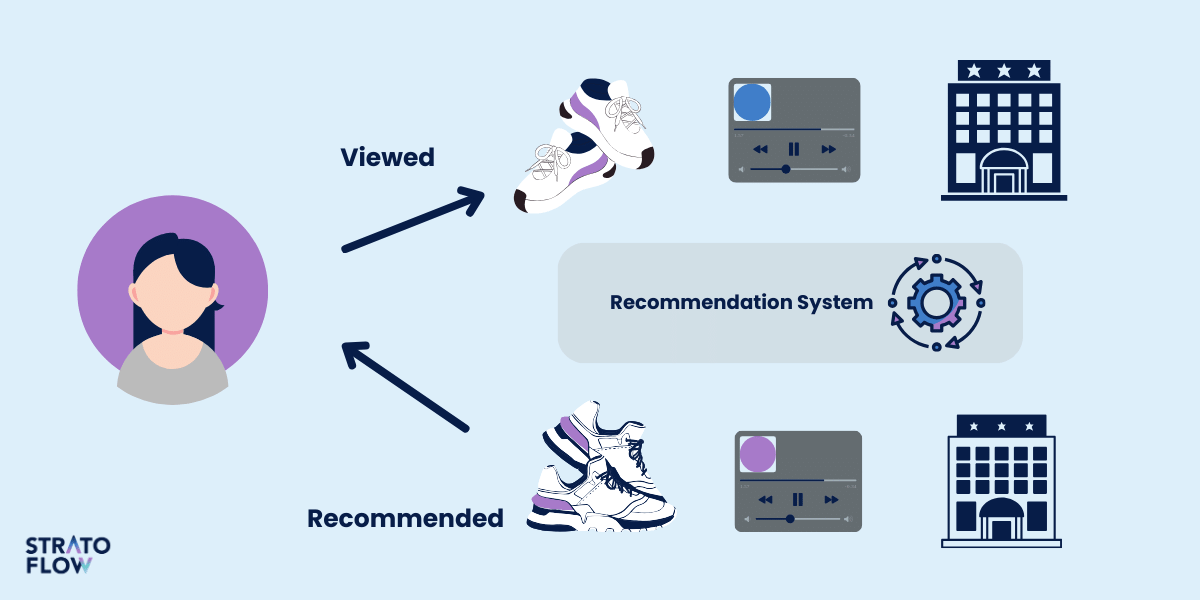
Content-Based Filtering Method
Content-based filtering focuses on the characteristics of the music itself, using features of the tracks to find patterns and similarities between the songs you like and others in the library.
Systems like Spotify’s recommendation system can use the following types of raw data to generate recommendations:
- Genre: Identifying and recommending songs within the same genre.
- Tempo: Matching the speed or beat of the music.
- Instrumentation: Analyzing the types of instruments used in a track.
- Melody and Harmony: Understanding the musical structure and harmony.
- Lyrics: Examining the themes, topics, and emotions expressed in the lyrics.
- Vocals: Considering vocal style, pitch, and tone.
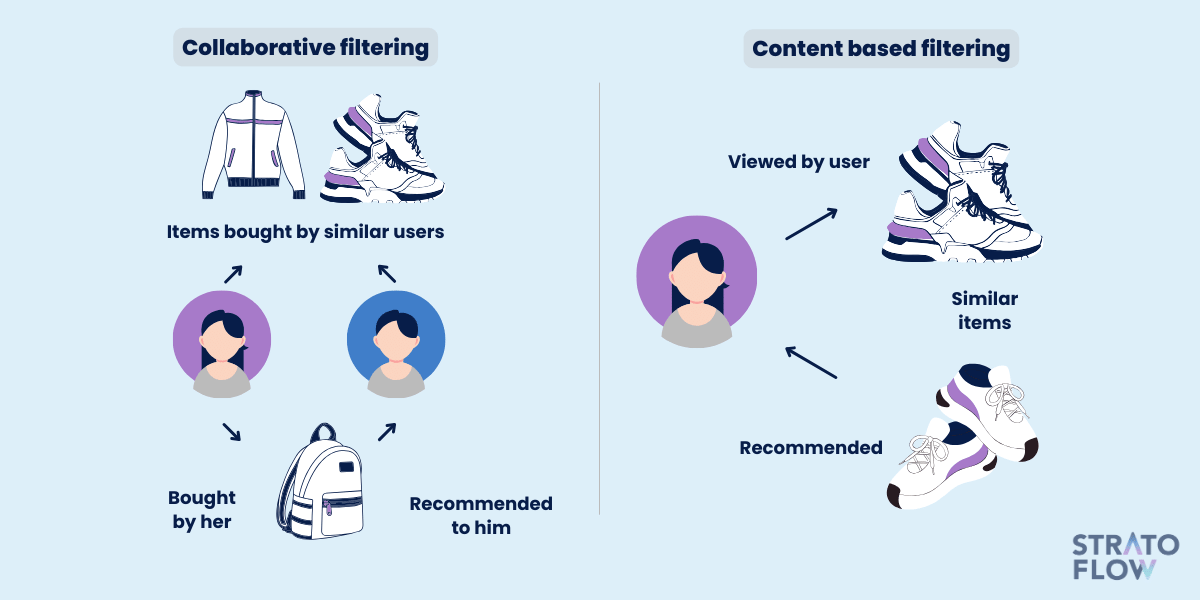
By analyzing these elements, content-based filtering helps ensure that recommendations are closely aligned with your current preferences, even if it sometimes struggles to introduce you to something completely different from your usual listening habits.
Advanced Audio Models
Advanced audio models take music recommendations to the next level by using complex algorithms and machine learning techniques to analyze the audio itself and suggest music more accurately.
These models can delve into the deep structure of songs, understanding not only genre or tempo, but also more nuanced elements like emotional tone or production style.
As a result, the system can recommend other songs that match the mood or atmosphere you’re looking for.
For example, Spotify’s recommendation engine uses the following types of data about the audio itself to improve its recommendations:
- Spectral Analysis: Breaking down the sound frequencies present in a track.
- Rhythm Patterns: Understanding the beat structure and rhythmic complexity.
- Harmonic Structure: Analyzing chord progressions and harmonic intervals.
- Timbre: Assessing the texture and color of the sound, including qualities like brightness or warmth.
- Loudness and Dynamics: Measuring the volume changes and intensity throughout the track.
- Mood and Energy Levels: Identifying the emotional tone and energy conveyed by the music.
By incorporating this rich audio data, advanced audio models can create highly personalized recommendations that resonate with your individual taste, even introducing you to music that you might not find through more traditional recommendation methods.
Building a Custom Music Recommendation Engine: Lessons From Professionals
These systems may seem complicated, but this technology is no longer limited to multi-billion dollar corporations.
Startups and smaller services can use it in much the same way, all thanks to custom music recommendation engines.
Incorporating advanced recommendation technology into your business can significantly increase user engagement and satisfaction.
By building a custom music recommendation engine, your company can deliver personalized music suggestions that match the tastes of individual users, similar to what the largest streaming services like Apple Music and Spotify do.
But to achieve this level of personalization and accuracy, you’ll need help from people who know what they’re doing, like the developers at Stratoflow.
Custom Recommendation Engine: Recostream Case Study
At Stratoflow, we pride ourselves on being at the forefront of custom software development, and our work on Recostream is a prime example of our capabilities.
Recostream is an AI/ML-powered recommendation engine we developed to provide advanced, personalized recommendations for eCommerce platforms.

Our goal was to create a system that not only integrates seamlessly into any eCommerce site, but also requires minimal technical expertise on the part of the user.
We developed Recostream with a focus on delivering real-time, highly accurate recommendations that can be customized to meet the specific needs of our clients.
The system is designed to increase sales by 5-10% through personalized recommendations, improving both customer satisfaction and retention.
In addition, Recostream’s fast integration time – sometimes as little as three minutes – demonstrates our commitment to creating easy-to-use solutions without compromising performance.
But that’s not all!
We have the expertise to build custom recommendation engines for a wide range of industries, including:
- E-commerce: Enhance customer experience with personalized product recommendations.
- Media and Entertainment: Tailor content suggestions for movies, music, and articles.
- Healthcare: Provide personalized health plans and treatment recommendations.
- Finance: Deliver customized investment strategies and financial advice.
- Education: Offer personalized course and learning material suggestions.
- Travel and Hospitality: Suggest personalized travel itineraries and accommodation options.
- Retail: Increase sales by recommending products that meet individual customer needs.
If you’re interested in building your own custom song recommendation engine or any other kind of personalization system, we’re here to help.
Contact us today to explore how we can create a solution tailored to your specific needs and drive your business forward.
Process of Building Custom Music Recommendation System
Based on our extensive experience developing Recostream, we have created a streamlined process for building a custom music recommendation engine.
This process consists of five critical steps that take you from concept to deployment.
By following these steps, you can ensure that your music recommendation system is both technically robust and finely tuned to meet the unique needs of your audience.
Step #1: Define the Business Goals and Requirements
The first step in building a custom music recommendation system is to clearly define your business goals and requirements. This includes understanding the target audience, the type of recommendations you want to generate (e.g., song, artist, playlist), and the key performance indicators (KPIs) that will measure success.
Work with stakeholders to gather detailed requirements and align on desired outcomes.
Development Tip: Use tools like JIRA for project management and requirement gathering. Maintain a clear specification document to guide development.
Step #2: Data Collection and Preprocessing
Data is the backbone of any recommendation engine. For a music recommendation engine, you need to collect data on user interactions (e.g., play history, likes, skips), music metadata (e.g., genre, artist, album), and even audio characteristics (e.g., tempo, key, volume).
The data must then be cleaned, normalized, and pre-processed to ensure consistency and usability.
Technical Stack: Utilize Apache Kafka for real-time data streaming and Apache Hadoop or Apache Spark for large-scale data processing. Java-based frameworks like Apache Flink can also be used for stream processing.
Step #3: Model Selection and Training
Choosing the right machine learning model is critical to the effectiveness of your recommendation engine.
Depending on the data and type of recommendations, you may use collaborative filtering, content-based filtering, or a hybrid approach. The model must be trained on historical data to accurately predict user preferences.
Technical Stack: Use Java-based machine learning libraries like Weka or Deeplearning4j for building and training models. TensorFlow and PyTorch (with Java bindings) can also be integrated for more complex neural network models.
Technical Tip: Experiment with different models and evaluate them using metrics like precision, recall, and F1 score. Use cross-validation to ensure your model generalizes well to unseen data.
Step #4: System Integration and Testing
Once the model is trained and tuned, it needs to be integrated with your existing infrastructure.
This involves creating APIs that allow the recommendation engine to interact with your application or platform.
Rigorous testing, including unit testing, integration testing, and A/B testing, is critical to ensure that the system performs as expected under different conditions.
Technical Stack: Implement RESTful APIs using Java frameworks like Spring Boot. For testing, use tools like JUnit and Mockito for unit testing, and Apache JMeter for load testing.
Technical Tip: Ensure your system is scalable and can handle peak loads. Implement caching mechanisms using Redis or Memcached to reduce latency and improve response times or introduce multitenant database architecture to ensure further scalability and extendability of the system.
Step #5: Deployment and Monitoring
The final step is to deploy the recommendation engine and set up monitoring to track its performance.
Continuous monitoring allows you to identify problems early, track KPIs, and make iterative improvements based on real-world usage.
Set up automated alerts to notify your team of any anomalies or performance drops. Regularly update and retrain your models to keep recommendations relevant and accurate.
Value of Music Recommendation Engines to Streaming Platforms
As mentioned earlier, personalized music recommendation systems provide a tailored user experience that is critical to the success of streaming platforms.
The ability to provide personalized recommendations not only increases user satisfaction, but also drives key business metrics.
Implementing a music recommendation engine can be a game changer for streaming services, offering numerous benefits that directly impact user engagement, retention, and overall platform growth.
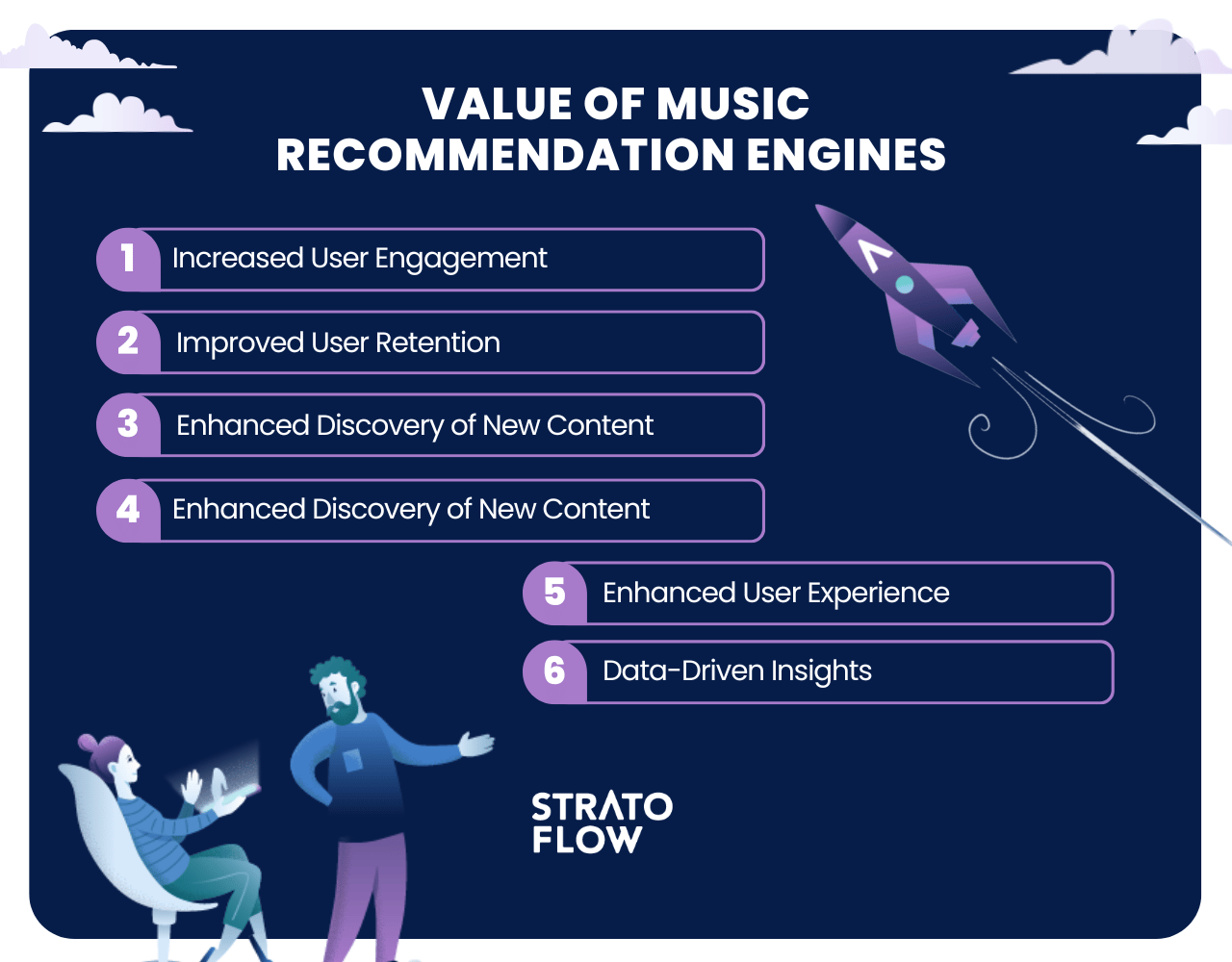
1. Increased User Engagement
Music recommendation engines significantly increase user engagement by consistently delivering content that matches the user’s preferences.
Platforms such as Spotify report a 30% increase in user engagement from personalized playlists such as Discover Weekly, highlighting the importance of such systems in keeping users actively engaged with the platform.
By delivering relevant content, these engines encourage users to spend more time on the platform, exploring new music and discovering new artists.
2. Improved User Retention
Personalized recommendations play a critical role in user retention.
When users feel that a streaming platform understands their tastes and continually offers them music they enjoy, they are more likely to stay loyal.
Studies show that platforms with strong recommendation systems can reduce churn rates by up to 10%.
This long-term retention is critical to maintaining a stable and growing user base.
3. Enhanced Discovery of New Content
A well-designed recommendation engine helps users discover new content they might not have found otherwise.
This not only enriches the user’s experience but also benefits artists by increasing their exposure.
Spotify‘s Discover Weekly playlist has been a massive success, generating billions of streams since its launch, and introducing users to a wide array of new music each week.
4. Increased Revenue and Conversions
Personalized recommendations can have a direct impact on a streaming platform’s revenue.
By suggesting tracks, albums, or even merchandise that matches a user’s preferences, these engines can increase conversion rates.
In addition, platforms that offer paid tiers or exclusive content can use recommendation engines to upsell these services more effectively.
Various digital platforms in industries such as media and e-commerce that effectively use recommendation systems can see up to a 35% increase in revenue from suggested content and related purchases.
5. Enhanced User Experience
The overall user experience is greatly improved when a platform offers smart, intuitive recommendations.
Users appreciate the convenience of having music that suits their mood or activities without having to search for it manually.
This level of personalization creates a seamless and enjoyable user experience, which is a significant competitive advantage in a crowded market.
6. Data-Driven Insights for Strategic Decisions
Implementing a music recommendation engine also provides valuable data on user preferences and behavior.
This data can be analyzed to gain insights into trends, popular genres, and user segments, helping streaming platforms make informed decisions about content acquisition, marketing strategies, and user experience enhancements.
These insights are invaluable for refining the platform’s offerings and staying ahead of industry trends.
[Read also: Complementary Products: A Way to Increase Your Online Store Sales]
How Other Industries are Leveraging Personalized Recommendations
Personalized recommendation engines have transformed how various industries interact with their customers, driving engagement, retention, and revenue growth.
To sum it all up, here’s how different sectors are leveraging this technology:
Ecommerce
In ecommerce, companies like Amazon have perfected the use of recommendation engines to boost sales and enhance customer satisfaction.

Amazon’s e-commerce product recommendation system, which influences up to 35% of the company’s total sales, utilizes data from user behavior, product interactions, and demographic information to suggest products that align with individual preferences.

This personalized approach not only increases conversion rates but also keeps customers engaged and coming back for more.
Travel
In the travel industry, platforms like Expedia and Booking.com use recommendation engines to personalize the travel booking experience.
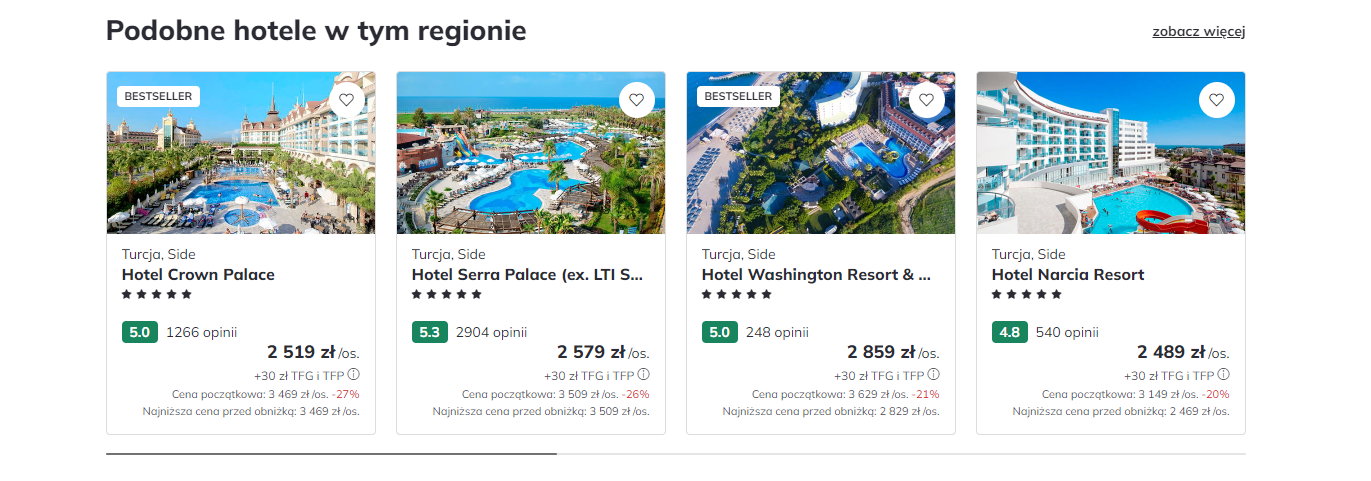
Expedia, for instance, uses machine learning models to analyze vast amounts of customer data, offering tailored recommendations for hotels, flights, and travel packages.
This personalization leads to a better user experience and increased customer loyalty, as travelers are more likely to book trips that closely match their preferences.
Real Estate
Real estate platforms are also harnessing the power of recommendation engines to simplify the property search process.

By analyzing users’ search behavior, preferences, and demographics, these systems can suggest properties that best meet a buyer’s needs.
This not only streamlines the search process, but also helps real estate companies better match customers with properties, improving customer satisfaction and increasing transaction rates.
Social Media
On social media platforms like TikTok and YouTube, recommendation engines are essential for curating content feeds that keep users engaged.

For example, TikTok’s algorithm tailors the “For You” page based on user interactions, likes, and video completion rates, ensuring that users are always presented with content that matches their interests.
Similarly, YouTube’s recommendation system drives 70% of what users watch, significantly increasing watch time and keeping users on the platform longer.
[Read also: Movie Recommendation System: How It Works And How To Introduce It In Your Business]
Media
In the media industry, Netflix has set a high standard for personalized recommendations, leveraging sophisticated algorithms to keep users engaged and satisfied.
Approximately 80% of the content watched on Netflix is driven by its recommendation system, which analyzes user behavior, viewing history, and preferences to suggest relevant shows and movies.
This personalization not only increases viewing time by 50% but also helps maintain a high subscriber retention rate of over 90%.

Netflix’s approach has proven so successful that it not only drives user engagement but also informs their content production strategy, ensuring that they create shows and movies that resonate with their audience.
Related Posts
- Inside the Netflix Algorithm: AI Personalizing User Experience
- How to Use Ecommerce Recommendations to Drive Sales?
- Complementary Products: A Way to Increase Your Online Store Sales
- Custom Recommendation Engines: What They Are and How to Use Them
- AI-Powered Recommendation Engines for Modern Business
Thank you for taking the time to read our blog post!

